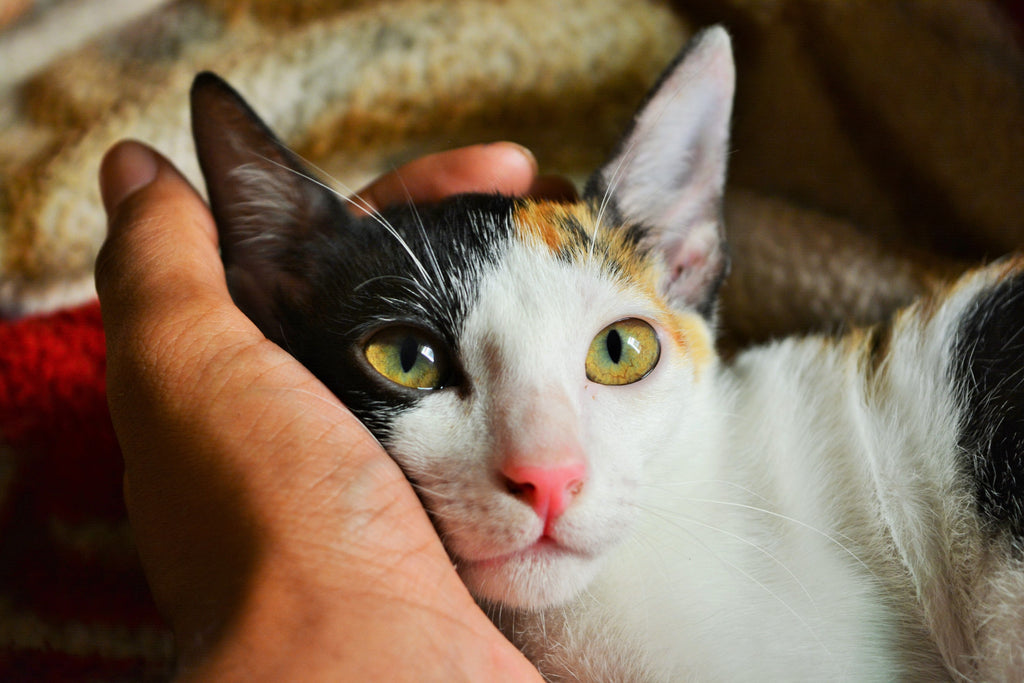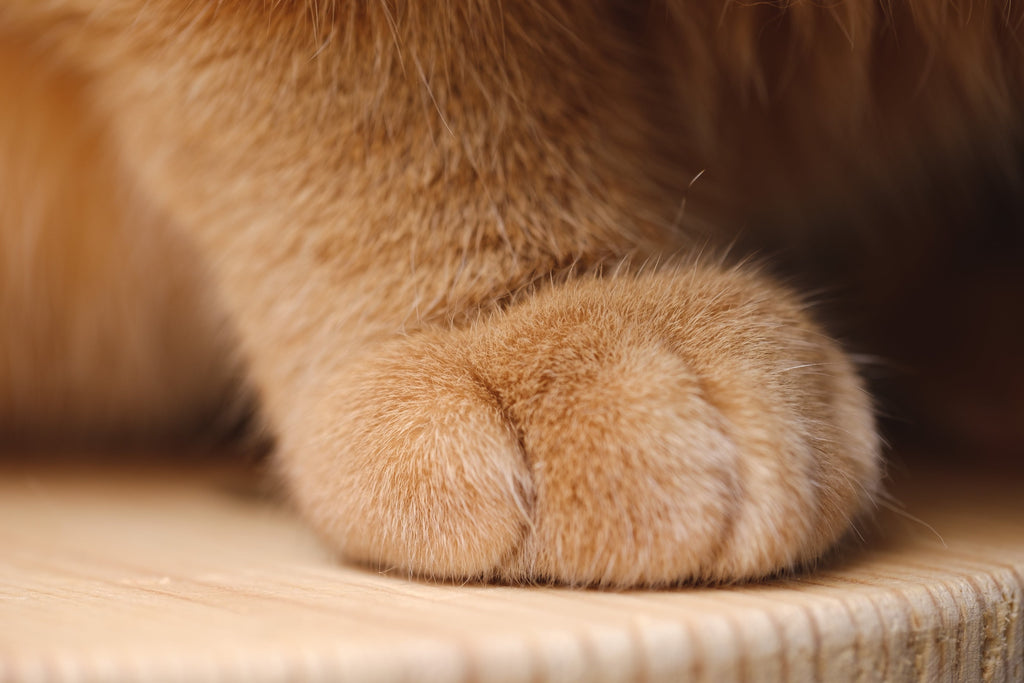Bone Cancer in Cats: Treatments, Life Expectancy, and Symptoms
Any cat parent who hears the word "cancer" shudders at the thought of it. It is considered one of the health concerns that needs to be caught early to curb increased risk on your beloved feline best friend.
To hear an early diagnosis of certain cancers for one of our beloved pets is a painful experience and we hate to see them suffering and in pain. In this article, we are going to look at bone cancer in cats, learning about the causes, life expectancy, and treatment options available.
We here at Zumalka are here to help you navigate your furry friend’s health issues by using our years of knowledge and experience in pet homeopathy and as pet parents ourselves.
Besides getting you in on the important things you need to know about feline bone cancer, we'll also walk you through simple and practical pointers on how to support and maintain your cat's quality of life during this serious health problem.
I hope this article helps answer all the questions you have. Moreover, check out our comprehensive guide to learn everything you need to know about cancer in cats to give your feline cancer patient the care and attention he deserves.
Are All Cats at Risk of Feline Cancer?

If we're being honest, cancer in cats can affect all of our feline friends. Besides cancers affecting the bones, your cat is also likely to be prone to squamous cell carcinoma, as well as those that can attack the lymph nodes, the gastrointestinal tract, and mammary glands, among others.
But the thing is there are key risk factors that may significantly increase your pet's vulnerability to cancer.
These include age, genetics, breed, exposure to certain environmental factors, severe hormonal imbalances as well as viral infections.
Common cancer "targets" are older cats, female cats predisposed to mammary tumors, as well as those belonging to certain breeds like Siamese cats and those constantly prone to secondhand smoke.
While most cats won't develop cancer during their lifetime, this health issue is not something you should ever overlook. Tumors in cats and feline malignant cancers could get in the picture without a warning.
This is the biggest reason why building up your cat's overall immune system health and white blood cell count as early as possible is crucial. Building a resilient immune response plays an important role in keeping cancer in cats at bay.
What is Bone Cancer in Cats?

In general, bone cancer in felines is somewhat rare. But over 95% of all primary bone cancers found in cats are Osteosarcomas, a type of cancer that affects the cells that create and break down the bones.
Osteosarcoma is most commonly found in the legs, especially the hind legs. The affected limb will usually require adequate pain control. A veterinary oncologist will normally prescribe conventional pain medications when this happens.
Other bones can be affected as well, such as the skull, pelvis, and jaw, but they are less common. Just a quick reminder, cat owners. The type and amount of pain management will depend on the fact if there is early detection or not in this situation.
In some cases of bone tumors and cancer in cats, the cancerous cells may infiltrate the bone marrow and may harm the body's production of white blood cells. This is a condition called myelosuppression and may affect a feline suffering from bone cancer or tumors in cats.
Does the Feline Leukemia Virus (FLV) Cause Bone Cancer?
While it has been verified by the Veterinary Society that FLV might have a role in increasing the risk of certain types of cancers like those affecting the lymphatic system and internal organs, including squamous cell carcinomas, there isn't much evidence that points to it as a possible trigger for cancers or bone tumors in cats.
It is crucial to take note that FLV is not the same as Feline Immunodeficiency Virus (FIV). However, the latter can also affect cats by drastically reducing their ability to fight disease and illnesses. Another big difference between the two is that a female cat can transmit FIV to her kittens.
Interestingly, cats spayed and neutered early are less likely to have FIV. Practitioners of veterinary medicine share that this may be due to their reduced aggressive behavior and roaming tendencies.
Is Squamous Cell Carcinoma the Same as Bone Cancer?

No, these two (2) health issues are distinct from each other.
Squamous cell carcinoma usually stems from the squamous epithelial cells, which act as a lining for organs. The most common type of this cancer in cats is that it affects the oral cavity. If not detected early, oral tumors may progress into feline cancers causing pain. Squamous cell carcinoma can also attack the lymph nodes.
Alternatively, feline cancer of the bones or osteosarcoma originates from the bones and other sites related to them like the marrow. Pain relief is usually required, especially when the malignant tumor affects a sizable area already.
As a piece of advice to many cat owners, consulting a veterinary oncologist is essential to determine the presence of cancer in cats. Procedures such as chest X-rays, abdominal ultrasound, fine needle aspiration, and the extraction of blood samples may be conducted to come up with meaningful results.
Does Feline Bone Cancer Affect the Lymph Nodes?

When a cat has bone cancer, it primarily affects the bones and not the lymph nodes. But the thing is that when this condition is overlooked or not given the immediate proper care and attention it deserves, it may spread to other parts of the body, including the lymph nodes.
Similarly, this can also happen to other types of cat cancer and tumors. These include mammary tumors and skin tumours that may have evaded early detection. This is one of the reasons why regularly reaching out to a pet wellness expert or a vet is crucial in maintaining a cat's quality of life.
What Causes Feline Osteosarcoma?
While we can’t point to a specific cause, it’s common to find cancer in spots where the bone had been fractured before. Moreover, there is some evidence that bone cancer can be virus-related.
When facing a cancer diagnosis, we often ask ourselves: why? What caused it? Even though we would love to identify a singular cause, often we don’t know the exact reason for a cat developing cancer.
Osteosarcoma in Cats: Symptoms
How do you know if your cat has osteosarcoma? The symptoms will often depend on the area of the body the cancer is affecting. What's alarming is that the clinical signs may vary when it comes to cancer in cats.
Bone Cancer in Felines: Jaw
If the cancer is affecting the jaw, you might notice they are having trouble opening their mouth and eating, or lots of saliva in their mouth. Conventional options like radiation therapy (patterned after human medicine) may be conducted as a treatment strategy.
Bone Cancer in Felines: Legs
If the cancer is affecting their legs, you will most likely notice lameness or pain and swelling in the leg. Radiation therapy may also be resorted to in this situation. In extreme cases, the swelling may have to be dealt with by veterinary surgeons in specialist centers.
Aside from radiation therapy, surgical oncology is another common conventional option when it comes to cat cancer. This is often resorted to in the case of a mammary tumor.
Other Crucial Indicators of Feline Cancer

Although there are no hard and fast rules when it comes to the clinical signs of cancer in cats, there are some common indicators of this health issue that you should take note of. Make sure you schedule a trip to the vet when the following already become persistent:
Sudden changes in behavior
Cats affected with cancer will become moody, lethargic, and disinterested in even their favorite activities. Some may even develop the habit of hiding under the furniture! A few cats may even avoid using their litter box.
Unexpected weight loss
A cat suffering from cancer will tend to have a poor appetite. It's not uncommon that he will have difficulty eating, too, particularly when the oral cavity is affected. This will eventually lead to weight loss.
The presence of bumps and lumps
Some types of cancer in cats will result in the manifestation of lumps and bumps. Although some of these may be too small to cause any issues in the daily routine of a cat, a few of them may require surgical removal.
Difficulty eating and drinking
Cats with tumors and cancers affecting the oral region won't be able to bite, chew, and swallow properly. As emphasized earlier, this makes them unexpectedly lose weight. Affected cats will also tend to drool a lot.
Just to reiterate, all of these indicators will have a huge impact on the quality of life of your cat. Seeking professional help as soon as you observe these clinical signs in a recurring manner is crucial.
Feline Bone Cancer: Life Expectancy
How long can cats live with bone cancer? This is a difficult question to answer because each case is different. Cats with this cancer can live on average anywhere from one (1) year to four (4) years, depending on the location, severity, and how early treatment was started.
Cats suffering from cancer are living on borrowed time. Keep in mind that giving them the proper care and attention they deserve is essential.
Treatment Options For Osteosarcoma in Cats
In most cases of osteosarcoma in the legs, the primary treatment recommended by your vet is amputation. All malignant (cancerous) tumors can spread to other areas of the body, so there is always the chance that the cancer can move to other places, like the lungs.
Thankfully, bone cancer in cats tends to be much less aggressive than in other animals, so the chances of it spreading are lower. Still, reducing the chances of recurrences and spread is a major part of treating cancer in cats.
A Premium Natural Option to Consider for Cancer in Cats
Many concerned pet parents look for natural products for cancer and other illnesses to help keep their pets healthy. That is why we are happy to tell you about PIPTOPET, an amazing product made from a medicinal mushroom, specifically designed to maintain the body healthy in case of cancer and tumors, even for long-term use!
We always love helping pet parents understand their pet’s health and find the best treatment options. Please reach out to us through email, chat, or phone call to see how we can help and answer any questions you might have! You can contact us now, too!
I hope you found this article helpful and informative! If you did, please share on social media and with your friends and family (including other parents of cats you know) so they can stay informed, too.








Hi Elizabeth, Thank you for reaching out and we are so sorry to hear what your cat is going through! We always recommend starting with our Piptopet Optimal kit, but we have sent you an email with some specific recommendations as well.
My cat has 5th metatarsal bone cancer diagnosed through x-ray. I have bought mushroom product and put coconut oil, once I put castor oil on the paw where it is sore. The area did open a little and I soaked the paw in Epsom salt and that seemed to help with healing. She has hyperthyroidism. We are giving her Gabapentin for pain. She little to no weight bearing on the right paw. I do have an appointment with a Vet Cancer Specialist. I put fish oil, bone broth in her Hills thyroid canned food, and started pureeing carrots and peas to put in her food also.
Hi Lisa,
Yes! Our Piptopet cancer product would be a great place to start. Please check your email as I’ve reached out for us to make a personalized recommendation for your kitty.
i have a cat that has been diagnosed with jaw bone cancer constantly slobbering will your cancer product work
Leave a comment